I should add to this…
I while back I got hold of a Behringer XR18. This is an 18 channel mixer which also has 18 in and 18 out USB and it works beautifully in Linux. It even has a free downloadable Linux app to control the extremely capable, mixing and routing capabilities in the unit itself via the network.
It has 24-bit resolution at 44.1 or 48kHz.
As it’s, fundamentally, a standalone mixer, then this unit has some fantastic routing and mixing capabilities, and also some onboard FX. For each of the 18 inputs you can select whether it is an analogue input or a USB output from the computer. For analogue inputs, every channel has a gate (with sidechain), EQ, and compression, as well as an FX send to each of the 4 onboard FX slots (which can be loaded from a range of FX including guitar amps, vintage style compressors and reverbs, delays,chorus, etc.).
16 of the inputs are “combi” style connectors (Jack or XLR) and two are jack line level inputs. Combi inputs 1& 2 are Hi-Z so you can DI guitars and basses.
There’s 6 output busses in addition to the stereo master bus, and you can also route the output of any channel to the PC over USB. The mono busses and channels can be ganged together to form stereo pairs.
Controlling the unit is done using the free PC, Mac, or Linux (yes!!) app, and there’s also an iPad and Android app. Control is via the network, and the unit can either act as a station on an existing wireless or wired LAN, or can be switched to act as a standalone wifi network for stage use.
This gives a fantastic degree of flexibility. To give some examples of how I’ve used this.
I have this connected up with Jack, so I see an 18-input/output device (you can switch this to 2-channel mode if you want). I have a Mic on one channel (it has phantom power and phase options), and guitar and bass DI’d on channels 1 & 2. I also have a synth and a guitar FX processor plugged into other channels. I often do Google Hangouts, and sometimes I will mess around with my guitar during these. I have configured 2 stereo busses, one outputting to my desktop monitor speakers, and one acting as the mixing point for USB “send”. I have headphones plugged into the monitor jack on the unit which is on the master bus.
So this basically allows me to create separate mixes for:
- Headphones
- Monitor speakers
- PC
So if I’m in the middle of a Hangout, I can listen to my noodling on the guitar/bass and the Hangout audio on my headphones, whilst the hangout hears my Mic audio, but not the guitar/bass. I could also choose to let the hangout hear the guitar/bass if it’s a social hangout.
I can also push Pulseaudio sound out of the PC on a channel, and mix it into any of the busses. Again this allows me to selectively and separately mix the audio from (for instance) Youtube to the speakers, headphones, or back to the PC (e.g. to a Hangout). I’ve used this, for instance, to play a backing track on the PC and play along on the guitar, performing into the Hangout.
Conversely, I can also set the gate on the microphone to duck the mic based on the guitar or bass input, so if I am in a conference call, I can mess around on the guitar and they won’t hear the strings through the mic. Another use for this is so that, when performing to a Hangout, the mic doesn’t pick up any acoustic string noise or fret buzz.
Cheers,
Keith
P.S. I removed the links to the appropriate parts of the Behringer wiki as these seemed to trigger the spam filters.
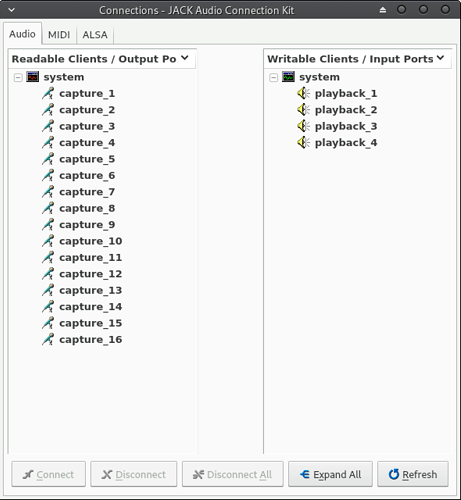
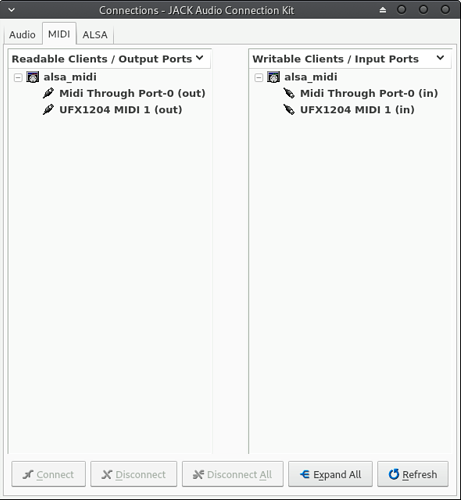
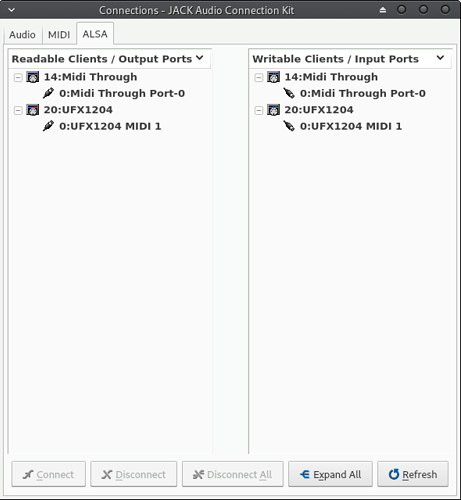
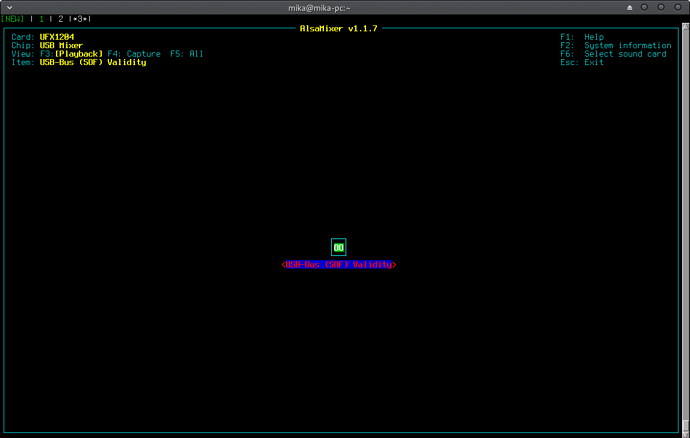
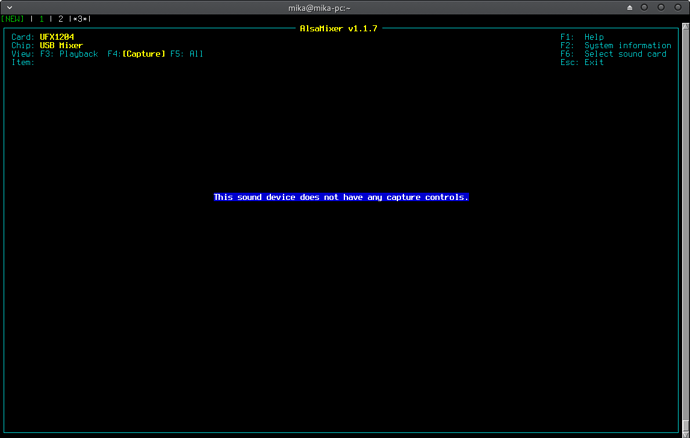
 The sound quality, to my ears at least, is superb even for 2019. Jump in if I should be corrected! I should conclude by saying that this also works flawlessly in Linux!
The sound quality, to my ears at least, is superb even for 2019. Jump in if I should be corrected! I should conclude by saying that this also works flawlessly in Linux!